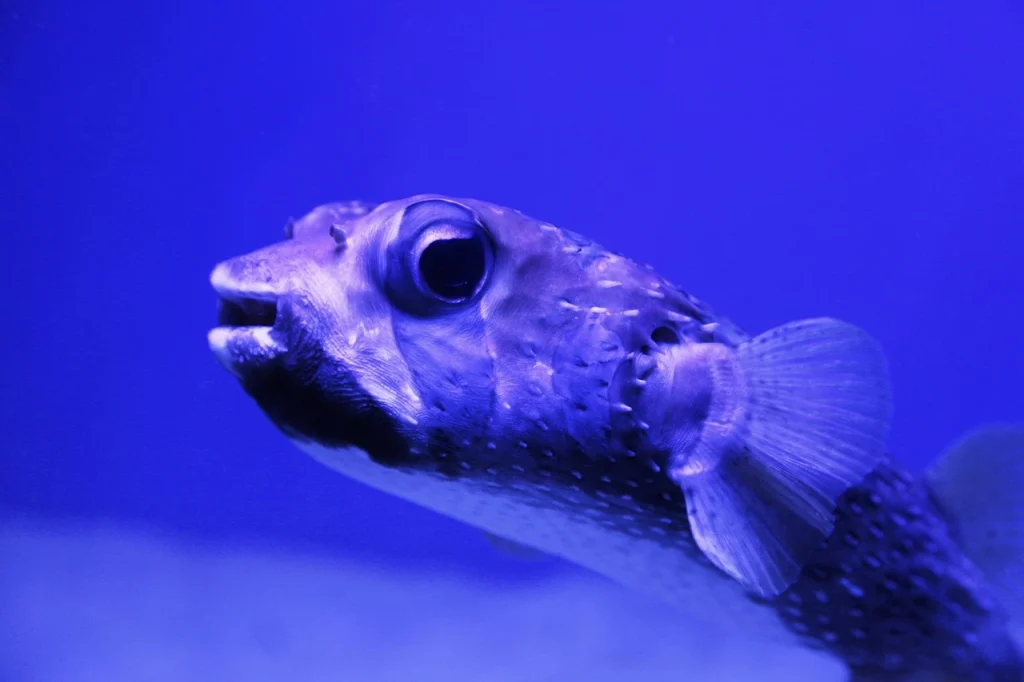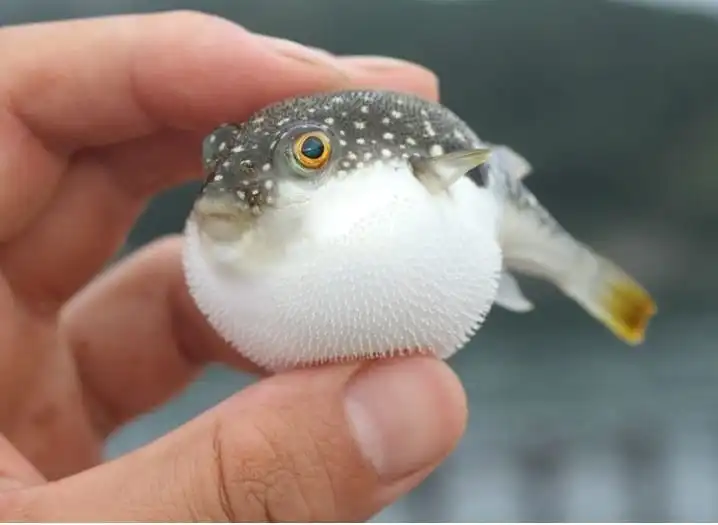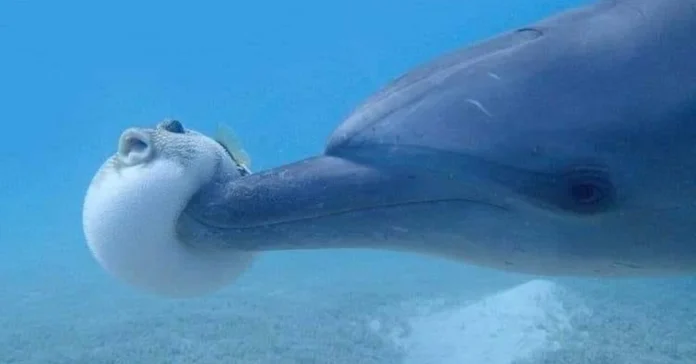Hey there, fellow anglers! Today, we’re diving into a topic that’s as fascinating as it is mysterious: Are Florida puffer fish poisonous? I mean, we’ve all seen these adorable, balloon-like creatures either in aquariums or while fishing, but what’s the real deal with their toxicity? Buckle up, because we’re about to deflate some myths and inflate your knowledge!
The Big Question: Are Florida Puffer Fish Poisonous?
Alright, let’s tackle the elephant—or should I say, the puffer fish—in the room. Are Florida puffer fish poisonous? This question has been floating around fishing circles, online forums, and even casual beachside conversations. So, let’s set the record straight: Yes, some Florida puffer fish are poisonous, but it’s not a one-size-fits-all answer. Intrigued? Let’s dive deeper into this fishy subject!
The Complexity of Puffer Fish Poison
First off, it’s essential to understand that not all puffer fish are created equal when it comes to toxicity. Some are more poisonous than others, and even within the same species, the level of poison can vary. The toxin we’re talking about here is called tetrodotoxin, and it’s no joke—it’s up to 1,200 times more poisonous than cyanide!
The Florida Puffer Fish Species: A Quick Rundown
Florida waters are home to a variety of puffer fish species, each with its own level of toxicity. Here’s a quick guide:
- Northern Puffer: This species is generally considered non-toxic, but it’s always better to be cautious.
- Bandtail Puffer: This one contains some toxins, particularly in its internal organs, but it’s not as lethal as some other species.
- Checkered Puffer: Ah, the bad boy of the Florida puffer fish world! This one is toxic and should be avoided at all costs.

The Poisonous Parts: Know Before You Touch
When it comes to which parts of the puffer fish are poisonous, there’s a hierarchy:
- Skin and Organs: These are the most toxic parts. Even touching them can be risky, so always use tools to handle them.
- Flesh: The flesh of some puffer fish species can also be toxic, but generally, it’s less so than the skin and organs.
The Myth of Puffing: Does It Increase Toxicity?
A common myth is that a puffed-up puffer fish is more toxic than a non-puffed one. In reality, the puffing is a defense mechanism and doesn’t affect the fish’s toxicity level. So, whether it’s puffed up like a balloon or sleek and streamlined, the toxic parts remain the same.
The Bottom Line: Exercise Caution
The takeaway here is that while not all Florida puffer fish are lethal James Bond villains of the sea, enough of them are toxic that you should exercise extreme caution. Never handle them with bare hands, and if you catch one while fishing for other species, release it carefully using pliers.
So, to answer the big question, are Florida puffer fish poisonous? Yes, some are, and it’s better to be safe than sorry. Always treat these fascinating creatures with the respect—and caution—they deserve.
How to Handle a Puffer Fish
Alright, my fishing friends, let’s say you’re out on the water, the sun is shining, and you feel that unmistakable tug on your line. You reel it in, and voila, you’ve caught a puffer fish! Now what? How you handle this quirky creature is crucial, not just for your safety but for the fish’s well-being too. So let’s dive into the do’s and don’ts of handling a puffer fish.
The Golden Rule: No Bare Hands!
First and foremost, never, and I mean NEVER, handle a puffer fish with your bare hands. Remember, we’re dealing with a fish that can contain tetrodotoxin, a substance way more toxic than cyanide.
- Use Pliers or Grippers: Always use fishing pliers or grippers to handle the fish. This keeps you safe and also minimizes stress to the fish.
- Gloves: Some anglers prefer using thick gloves as an added layer of protection. Just make sure they’re not so bulky that you drop the fish!
View this post on Instagram
The Release: Be Gentle
If you’re not planning on keeping the puffer fish (which is most often the case given their toxicity), releasing them back into the water is the next step.
- Don’t Just Toss Them: A gentle release is crucial. Don’t just throw them back into the water; lower them in gently to minimize stress and potential injury.
- Revive If Needed: Sometimes, the fish might be a bit stunned, especially if it puffed up as a defense mechanism. Hold it upright in the water for a few seconds to help it regain its bearings before letting go.
The Photo Op: Quick and Safe
I get it, puffer fish are unique-looking, and it’s tempting to take a photo. If you do, make it quick and keep the fish over a soft surface like the water or a padded mat.
- Quick Snaps: Have your camera ready for a quick photo, and then release the fish immediately.
- Keep It Low: Always keep the fish low to the water or boat deck to minimize injury in case it slips from your grip.
So there you have it, the complete guide on how to handle a puffer fish safely and responsibly. Remember, these creatures are not just another catch; they’re a part of Florida’s diverse marine ecosystem. Treat them with the respect they deserve, and you’ll have a fishing tale to tell that’s not just about the one that got away, but the one you handled like a pro!
What If You Want to Eat One?
You’ve probably heard of Fugu, the Japanese dish made from puffer fish. It’s a culinary experience that comes with a side of adrenaline because the chefs who prepare it undergo rigorous training and certification.
- Highly Trained Chefs: In Japan, Fugu chefs train for years and have to pass a stringent exam to get certified.
- Precision is Key: The preparation involves carefully removing the toxic parts, so only the safe flesh remains. One wrong cut, and you’re in dangerous territory!

The Florida Scene: Not So Common
In Florida, puffer fish is not commonly found on menus, and for a good reason. The risks outweigh the benefits for most people.
- Local Regulations: Always check local regulations if you’re considering keeping a puffer fish. Some areas have restrictions due to the potential risks involved.
- When in Doubt, Throw it Out: If you’re not 100% sure about the species or how to prepare it, it’s better to release the fish and opt for a safer catch.
The Final Word: Proceed with Caution
So, if you’re thinking about eating a puffer fish, my advice is to proceed with extreme caution. It’s a culinary adventure that’s fraught with risks unless you’re in the hands of a certified chef. And even then, it’s not everyone’s cup of tea—or should I say, bowl of Fugu!

Final Thoughts
So, there you have it! The answer to are Florida puffer fish poisonous is a bit of a mixed bag. While not all puffer fish in Florida are toxic, enough of them are that you should exercise caution when handling them. Always remember, these creatures are more than just a cute face—they can pack a punch!
Until next time, tight lines and happy fishing!

